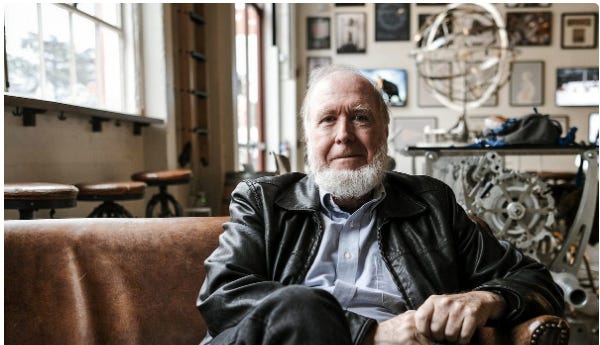#47 | 5.3.24 - A Tool to Make Better Decisions / 101 Tips For A Better Life / The Science of Silence / 24 Ted Talks For Leaders
Hello, friends, and welcome to Further Faster Fridays! Happy to have you here!
If this is your first issue, welcome! We ship the best content in personal development and leadership each Friday to help you go further, faster. Glad to have you as part of the community!
Now, on to the content!
A Tool to Make Better Decisions
I’ve just finished the book, “The Millionaire Fastlane” after a friend recommended it. Historically, I’ve been skeptical of books in that genre, as I assume they would be a pitch for a multi-level marketing group or have a “you just need to work harder” message. I was pleasantly surprised with this book, though. There are many useful, practical tools in the book, as well as questions to get you thinking.
One useful tool within the book is the “Weighted Average Decision Matrix.” Recently, I’ve been thinking that I want to get ‘better’ at making decisions (whatever that means). This tool is certainly a step in that direction.
Here’s how it works:
Assume you are choosing between two different options. In this case, let’s say you’re debating moving to either Detroit or Phoenix.
Get a pencil and paper. Make three columns on your paper, one headed “Factors” and the other two for each choice, “Detroit” and “Phoenix.”
Determine what decision factors are essential in your decision. In this example, we’ll say weather, schools, cost of living, etc.
Write down all aspects relevant to the decision, no matter how small. Write these factors in the “Factor” column.
Next to each decision factor, weigh its importance to the decision from 1 through 10, with 10 being the most important. For example, if you valued warm and sun, the weather would be assigned a 10 in your matrix.
After each criterion is ranked 1 through 10, grade each choice 1 through 10 for each decision factor. The school system in Detroit? You give it a 2. In Phoenix, you assign the school system a 3 as you determine it is slightly better. Continue for each decision factor within each choice.
Next, multiply the weight by the grade for each row and put that number next to the grade in parentheses. For example, in the weather row, Detroit receives a 20 (10 weight × 2 grade). Do this for all rows.
The last step is to add up the graded weight columns (Detroit and Phoenix, in this case) to get a final number for each choice. The highest number will be the choice you favor.
In this hypothetical example, you should stay in Detroit because it received the highest score, 232 over 228.
101 Tips For A Better Life
Kevin Kelly (pictured above), Founder of Wired Magazine recently wrote a book in which he provided 406 pieces of advice from his 72 years of life. The article linked above is 101 additional gems from Kevin.
Here are a few of my favorites:
Try to define yourself by what you love and embrace, rather than what you hate and refuse.
Whenever you hug someone, be the last to let go.
Asking “what-if?” about your past is a waste of time; asking “what-if?” about your future is tremendously productive.
The best way to criticize something is to make something better.
I’ve discovered this is hugely important to me. Anyone can be a critic, however I gravitate toward the opinions of those who see how things can be improved AND come up with ideas on how to make it better. Reminds me of Theodore Roosevelt’s Man in the Arena speech that hangs in my office.
The Science of Silence
Have you ever turned down the music in your car to find a parking spot? You’ll relate to this article. An interesting read (with a lot of science!) about the benefits of silence for your brain and how the absence of noise affects your decisions.
24 Ted Talks for Leaders
This is a great collection of Ted Talks specifically dealing with topics that are dealt with in leading teams. A few of my favorites:
Simon Sinek: How Great Leaders Inspire Action
Dan Pink: The Puzzle of Motivation
Derek Sivers: How to Start a Movement
Drew Dudley: Everyday Leadership
Words to wrap up
Your future needs you. Your past doesn't.
- Unknown







